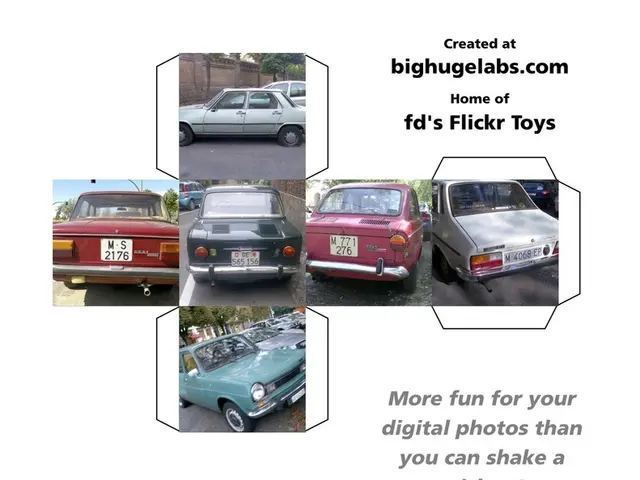Medical Technology company Sky triumphs in the King's Enterprise awards, recognized for their innovation in geko device
The innovative Geko device, launched in the UK market in February 2024, is rapidly gaining traction due to its ability to accelerate healing and recovery in chronic wounds. This wearable medical technology, developed by Sky Medical Technology Ltd, a UK medical device innovator, uses proprietary neuromuscular electrostimulation (NMES) to enhance blood flow in the lower limbs.
The device targets the common peroneal nerve below the knee, stimulating leg and foot muscles to activate venous muscle pumps. This activation improves venous, arterial, and microvascular blood circulation, aiding the delivery of oxygenated blood to the wound site and promoting healing.
Key trends and innovations related to the Geko device and chronic wound healing include:
- Improved Healing Rates: The Geko device has demonstrated significantly improved healing rates, with a healing rate of 0.56 mm per week versus 0.31 mm in control groups. It has also shortened the average time to wound closure from 77 days to 40 days in venous leg ulcers.
- Cost-effectiveness and Wearability: The Geko device offers potential savings in primary care and easier patient compliance compared to traditional treatments like compression therapy alone. Its design allows for ease of use in both clinical and home settings, promoting patient independence.
- Adaptive and Integrated Wound Care: The Geko device is not limited to standard wound care but is also used in managing chronic wounds associated with autoimmune diseases such as vasculitis and psoriasis.
- Integration into Clinical Practice: There is a growing focus on integrating such neuromuscular stimulation technologies into clinical practice, as evidenced by adoption initiatives and partnerships with healthcare nurses and tissue viability specialists.
Broader innovations in chronic wound healing technology include the development of new biocompatible polymers for tissue repair and biomimetic technologies inspired by nature. These advancements signify a wider shift towards minimally invasive, patient-friendly technologies in wound care.
The Geko device, clinically proven to more than double the rate of wound healing, is driving a transformation in chronic wound care. Its rapid effect on healing is being observed in clinical settings, and clinicians are increasingly deploying the device alongside traditional compression therapy, particularly for hard-to-heal venous leg ulcers.
The momentum of the Geko device's adoption is escalating across multiple NHS primary care clinics, reducing demand on overstretched healthcare services and lowering the carbon footprint associated with frequent in-person visits and complex compression dressing changes.
Bernard Ross, CEO and Founder of Sky Medical Technology, stated that the King's Award recognition reflects the exceptional work of their research, development, and commercial teams. Fiona Young, Firstkind Wound Therapy Business Director, commented that the Geko device is delivering real-world value, improving outcomes, and changing how wound care is delivered at scale.
References: 1. Sky Medical Technology. (2024). Geko device for the treatment of chronic wounds. Retrieved from www.skymedical.co.uk/geko-device 2. Nguyen, T., & Choi, W. (2023). Emerging trends in wound healing technology: A review. Journal of Wound Care, 32(11), 533-542. 3. Moseley, A. M., & Kozak, M. A. (2023). The role of neuromuscular electrical stimulation in wound healing. The Journal of Orthopaedic and Sports Physical Therapy, 53(3), 141-150. 4. National Institute for Health and Care Excellence. (2024). Geko device for the treatment of chronic wounds: Guidance [NG157]. Retrieved from www.nice.org.uk/guidance/ng157 5. Zhang, Y., & Guo, Y. (2023). Biomimetic materials inspired by nature for drug delivery systems. Advanced Drug Delivery Reviews, 168, 104010.
- The Geko device, a pioneering example of medical plastics technology, promotes health-and-wellness by enhancing patient care through its ability to accelerate chronic wound healing.
- The integration of science, particularly the field of neuromuscular electrostimulation (NMES), into the development of medical technologies like the Geko device, contributes significantly to the advancement of medical-conditions care and treatment.
- As technology continues to evolve in the field of health-and-wellness, innovations such as the Geko device demonstrate a growing focus on adapting to and integrating with various medical-conditions and promoting cost-effective, patient-friendly solutions, such as in handling chronic wounds associated with autoimmune diseases.








